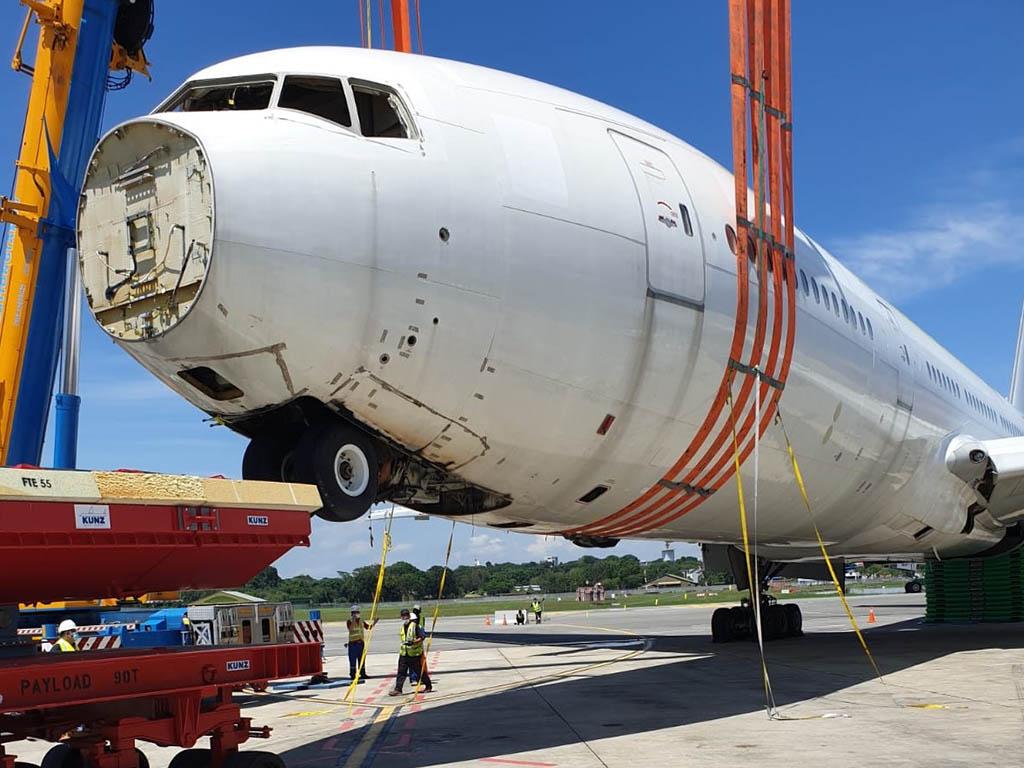
SINGAPORE—Singaporean startup Nandina REM is exploring new methods to reprocess materials from decommissioned aircraft while maintaining the high-value properties of parted-out structures.
The company, in collaboration with government research agency A*Star, has made significant progress by introducing recycled carbon fiber materials made from Boeing 767 floorboards.
Reclaiming carbon fiber is known to be challenging since it cannot be melted down and reformed, with traditional processes compromising its material integrity. A*Star has provided Nandina REM with expertise in intelligent automation, multi-material segregation processes and green material recovery.
"Some aviation recycling does exist, but it usually involves crushing the materials, resulting in low-value grading," Nandina REM CEO Karina Cady tells AviationWeek on the sidelines of the Singapore Airshow. "We emphasize high-value processes to assist customers, such as those in the electric vehicle industry seeking high-value aluminum that meets their secondary material requirements."
Nandina REM estimates that 82 million tonnes of CO2 can be removed from supply chains through the reprocessing of retired aircraft.
The company is currently collaborating with supply chain partners, such as Sumitomo Corporation, to identify "low-hanging fruit" opportunities. Nandina REM has a memorandum of understanding (MOU) to supply these materials to Sumitomo's electric vehicle businesses and is working with aircraft interiors designer JAMCO to explore opportunities for using recycled carbon fiber in non-structural components like interior linings.
A network of experts is assisting in developing processes for parting out aircraft, which varies according to the type, to ensure that the value of the material is not lost. Special contractors are engaged to do the work who can comply with requirements and processes.
Nandina REM plans to part out 40 aircraft in 2024, primarily in Malaysia but also other neighboring countries, with parts processed at the Malaysian metal processing company PMB Aluminum. Cady says that the startup plans to keep its operations centered in Singapore because of its MRO ecosystem and status as a trading hub as Nandina REM looks to market the materials to overseas customers.
